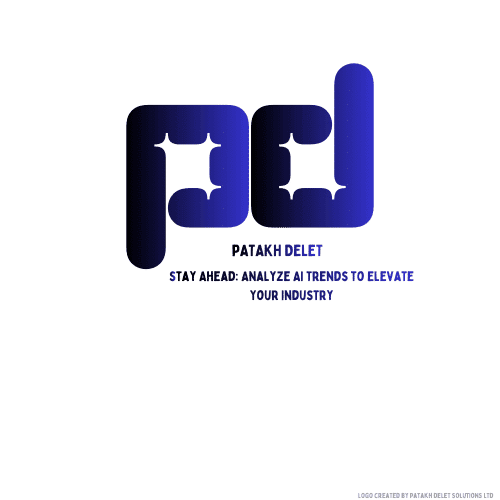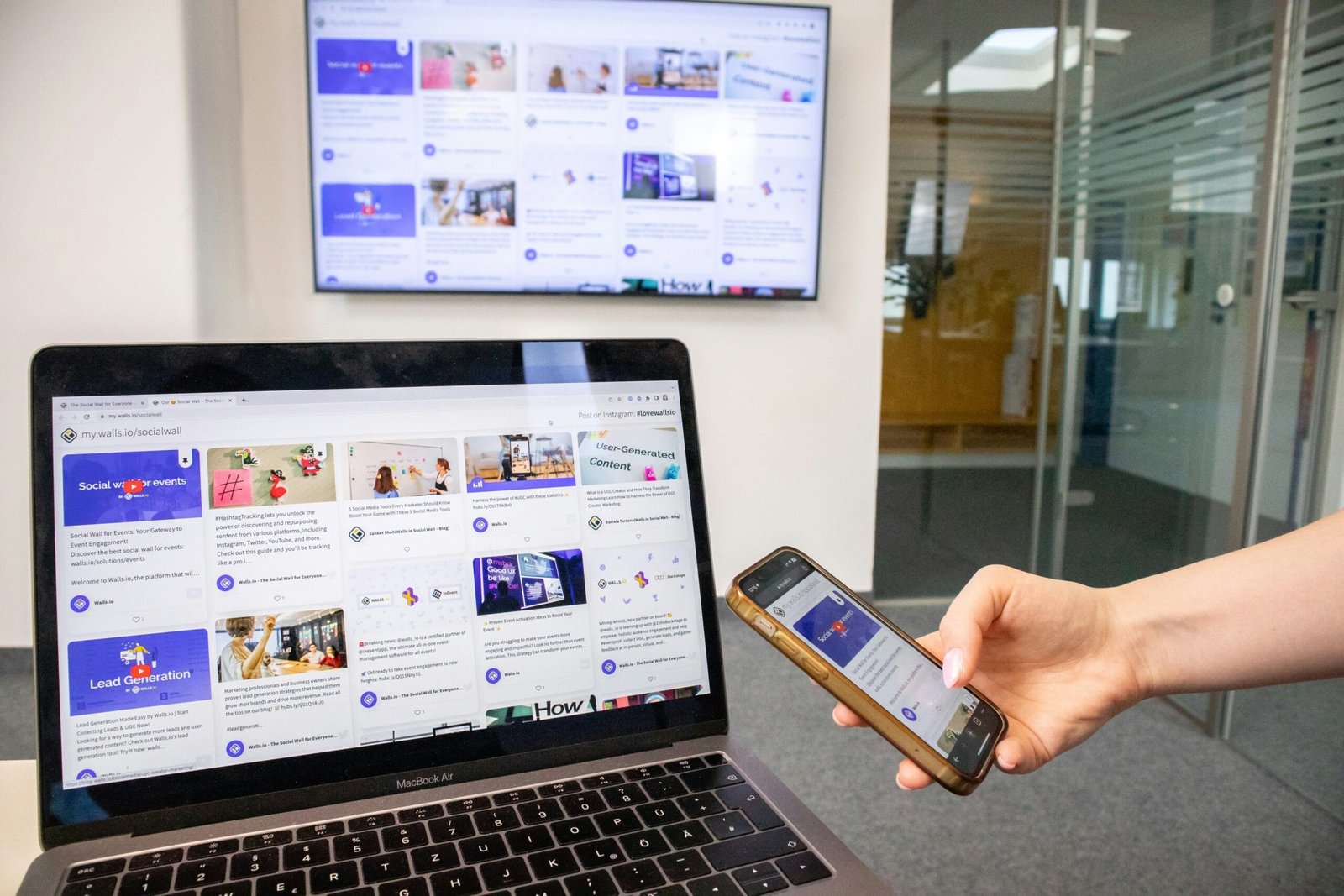Thriving in a Competitive Market: Consulting Strategies

Introduction to Digital Communications Consulting
In the modern business landscape, digital communications consulting has emerged as a crucial field that helps organizations navigate the complexities of online engagement. Digital communications consulting involves providing expert advice and strategies to enhance a company’s communications through various digital platforms. This role is critical in helping businesses establish a strong online presence, build brand reputation, and effectively interact with diverse audiences. As consumers increasingly turn to digital channels for information and interaction, the demand for skilled consultants who can integrate communication strategies in these realms has grown significantly.
The digital communications consultant serves as a bridge between the organization and its target audience, employing a range of techniques and tools to facilitate engagement. This includes the utilization of social media, email marketing, content marketing, and search engine optimization (SEO) to convey messages that resonate with potential customers and stakeholders. A thorough understanding of these elements enables consultants to craft tailored strategies that not only meet organizational objectives but also enhance audience experiences.
Ultimately, digital communications consulting plays a pivotal role in helping businesses succeed. It equips organizations with the insights and capabilities needed to thrive in an increasingly competitive market, ensuring they can effectively connect with their audiences. As such, mastering the essential skills required for this role is not only beneficial for the consultant but also for the organizations they serve, paving the way for sustainable growth and enhanced communication strategies.
Exceptional Communication Skills
In the realm of digital communications, the significance of exceptional communication skills cannot be overstated. A digital communications consultant must possess strong verbal and written communication abilities to effectively convey messages, engage diverse audiences, and nurture relationships. Whether it is drafting emails, creating content for social media, or presenting strategies, the quality of communication directly impacts the success of any initiative.
Effective communication begins with clarity. In digital environments, where messages compete for attention, the ability to deliver clear and concise information is paramount. A well-structured message can cut through the noise, ensuring that the intended audience understands the key points without confusion. For example, a consultant drafting a social media campaign must tailor the language and style to resonate with the target demographic, employing a tone that matches both the brand and the audience’s expectations.
Moreover, strong writing skills are crucial for crafting engaging content that encourages audience interaction. A consultant must be adept at varying their writing style across different platforms, recognizing that what works on a blog may not be effective in an email or on social media. For instance, a professional article may require a formal tone and in-depth information, while a tweet must be catchy and succinct. The mastery of multiple forms of communication enhances a consultant’s ability to foster engagement and initiate conversations, leading to deeper connections with the audience.
Beyond the written word, verbal communication plays a vital role in stakeholder relationships. A digital communications consultant is frequently called upon to present ideas, strategies, and results to clients or team members. Effective verbal skills, including active listening and persuasive speaking, can instill confidence in clients and team members alike. This fosters an atmosphere of collaboration and understanding, which is essential for successful project execution.
Overall, exceptional communication skills—both verbal and written—are fundamental for any digital communications consultant aiming to thrive in a competitive landscape. These skills not only facilitate clear messaging but also enhance audience engagement and relationship-building, ultimately leading to the success of communication strategies.
Digital Marketing Expertise
In today’s technology-driven landscape, the role of a digital communications consultant is increasingly pivotal. Among the essential skills they must acquire is a robust understanding of digital marketing. This encompasses a broad range of techniques and methodologies, prominently featuring search engine optimization (SEO), social media marketing, and content marketing. Mastering these components allows consultants to provide invaluable support in boosting their clients’ visibility and online presence.
SEO is fundamental to digital marketing strategies; it involves optimizing content to enhance its ranking in search engine results. A consultant well-versed in SEO can help organizations understand how search algorithms function, enabling them to fine-tune their websites and produce relevant content that attracts organic traffic. The importance of staying informed about the latest SEO trends cannot be overstated, as the digital landscape constantly evolves, creating new challenges and opportunities.
In addition to SEO, social media marketing plays a crucial role in connecting brands with their target audiences. Digital communications consultants must possess a strong knowledge of various social media platforms, including their unique algorithms, advertising options, and user demographics. This insight allows consultants to craft tailored strategies that engage consumers and foster brand loyalty. By understanding how to leverage social media effectively, consultants can enhance their clients’ reach and cultivate a community around their products or services.
Finally, content marketing is vital for establishing a brand’s voice and narrative. Consultants must be skilled in developing content that resonates with audiences while aligning with broader marketing objectives. Content not only educates and informs potential clients but also supports SEO efforts by driving traffic and generating engagement. As digital marketing continues to evolve, maintaining expertise in these areas is essential for consultants to offer strategic insights and help clients navigate the complexities of the digital landscape.
Analytical Skills
In the realm of digital communications, strong analytical skills are essential for professionals seeking to interpret data and metrics effectively. The ability to analyze data not only aids in assessing the success of campaigns but also refines future strategies, ensuring that consultants can make informed decisions based on factual evidence rather than assumptions. As digital channels continue to evolve, the importance of data analysis in shaping communication strategies cannot be overstated.
Digital communications consultants employ a variety of tools to gather, analyze, and interpret data. These tools range from Google Analytics, a versatile platform for tracking website performance, to social media analytics tools such as Hootsuite and Sprout Social, which provide insights into audience engagement and behavior. By leveraging these tools, consultants can gain meaningful insights into campaign performance, identifying which aspects resonate with the target audience and which require adjustments.
Moreover, a comprehensive understanding of key performance indicators (KPIs) is vital for digital communications consultants. These metrics can include engagement rates, conversion rates, and traffic sources, all of which play a pivotal role in evaluating the effectiveness of a communication strategy. By monitoring these KPIs, consultants can engage in data-driven decision-making that informs their future communications efforts.
Being adept in data analysis also involves utilizing A/B testing methodologies, allowing consultants to compare two versions of content to determine which performs better. This approach not only provides granular insights but also facilitates continuous improvement in messaging and channel strategy. Ultimately, a strong analytical foundation empowers digital communications consultants to craft more effective, targeted campaigns that yield measurable results, establishing a feedback loop that enhances overall communication effectiveness.
Creative Problem-Solving
In the dynamic landscape of digital communications, creativity plays a pivotal role in the success of any consultant. The ability to think outside the box and develop innovative solutions is a key skill that can differentiate a digital communications consultant from their peers. Each client may present unique challenges that require fresh perspectives and original ideas. Thus, cultivating a strong foundation in creative problem-solving is essential.
Creative problem-solving involves more than just generating ideas; it encompasses a systematic approach to identifying and addressing challenges. A consultant must first understand the client’s specific needs, objectives, and limitations. This understanding forms the basis for brainstorming potential strategies that not only meet the client’s goals but also resonate with their target audience. Techniques such as mind mapping, role-playing, and collaborative workshops can help unlock creativity in this process, allowing consultants to explore diverse ideas and solutions.
Moreover, storytelling is a significant aspect of creative problem-solving in digital communications. Consultants can utilize narratives to present complex ideas in a more engaging and relatable manner. By weaving compelling stories into their strategies, they not only capture attention but also foster deeper connections with the audience. This creative technique can lead to innovative campaigns that break through the noise of a cluttered digital marketplace.
Additionally, it is essential for digital communications consultants to stay abreast of industry trends and emerging technologies. Being informed about the latest advancements can inspire original approaches to common challenges. By combining technical knowledge with creative thinking, consultants can devise forward-looking strategies that not only solve current problems but also position their clients for future success.
Project Management Abilities
Effective project management is a cornerstone skill for any digital communications consultant. In a field characterized by dynamic environments and continuous evolution, possessing robust project management abilities enables professionals to navigate complex initiatives successfully. A digital communications consultant must be adept at organizing and executing projects that align with both client expectations and organizational goals.
Time management is one of the critical components of successful project delivery. It involves not only planning and scheduling but also prioritizing tasks to ensure that deadlines are met without compromising quality. Consultants can utilize various project management tools that help visualize timetables and set milestones, thus enabling teams to monitor their progress effectively. A well-structured timeline ensures that every team member is aware of their responsibilities and contributes to maintaining overall project momentum.
Another essential element is budgeting. Being proficient in budgeting allows digital communications consultants to allocate resources efficiently, ensuring that projects are delivered within financial constraints. Effective budgeting involves estimating costs accurately, identifying potential financial risks, and implementing strategies to mitigate those risks. An understanding of budget management can significantly impact a project’s success and helps in maintaining transparent communication with clients regarding financials as projects evolve.
Additionally, coordination and collaboration with team members are vital in driving project success. A digital communications consultant must facilitate regular meetings and encourage open dialogues among team members to ensure that everyone is on the same page. Establishing clear communication channels and fostering a collaborative spirit can lead to innovative solutions and expedite decision-making, ultimately contributing to the project’s success.
In conclusion, mastering project management skills encompassing time management, budgeting, and team coordination is imperative for digital communications consultants. These competencies lay the foundation for successfully executing digital projects and achieving desired outcomes in a fast-paced environment.
Knowledge of Emerging Technologies
In the rapidly evolving landscape of digital communications, a comprehensive understanding of emerging technologies is paramount for consultants aiming to deliver innovative solutions. As new digital tools and platforms continually reshape how businesses communicate, staying informed about these trends is no longer optional—it is essential. Digital communications consultants must keep a keen eye on advancements, including artificial intelligence (AI), automation, and a myriad of new communication platforms, each of which plays a crucial role in enhancing customer engagement and operational efficiency.
AI, for instance, has transformed the way businesses interact with their audiences, providing insights that help track user preferences and behaviors. Knowing how to leverage AI tools can enable consultants to craft personalized communication strategies that resonate more deeply with target audiences. Similarly, knowledge of automation technologies allows consultants to streamline repetitive tasks, ensuring that their focus remains on strategy and creative problem-solving rather than administrative burdens.
Moreover, emerging communication platforms, such as chat apps, social media, and video conferencing tools, are vital for effective outreach. Consultants equipped with expertise in these platforms can guide clients in selecting the most appropriate channels for their specific needs, ultimately improving the overall effectiveness of their communications. Being adaptable and proficient in various new tools not only enhances a consultant’s service offering but also provides clients with a distinct advantage in a crowded marketplace.
In addition, understanding the implications of these technologies on privacy, security, and ethical communication is crucial for consultants to ensure compliance and build trust with their clients and audiences. Constantly updating one’s knowledge base regarding these evolving technologies will position digital communications consultants as invaluable assets to their clients, reflecting a commitment to innovation and excellence in their field.
Cultural Competence in Digital Communications
Cultural competence is an essential skill for digital communications consultants in today’s globalized world. Understanding and appreciating the diverse cultures, values, and beliefs of various audiences is crucial for creating effective communication strategies. As digital platforms continue to evolve, the ability to navigate cultural nuances can significantly enhance engagement and message effectiveness.
To achieve cultural competence, consultants must first develop a keen awareness of their target audience. This involves researching and understanding the demographics, traditions, customs, and communication styles of different groups. By gaining insights into the preferences and expectations of diverse populations, digital communications professionals can tailor their messages to resonate more deeply with their audience. This targeted approach fosters greater connection and dialogue, ultimately leading to improved outcomes.
Moreover, cultural competence is not solely about awareness; it also entails the ability to adapt content and delivery methods to suit varying cultural contexts. For instance, the symbolism, idioms, and humor acceptable in one culture may not translate to another. Therefore, digital communications consultants should employ culturally-sensitive messaging techniques. These include using appropriate visuals, language, and formats that reflect the values and communication styles of the target demographic, thereby enhancing relatability and effectiveness.
Furthermore, fostering inclusivity in messaging can enhance trust and credibility among audience members. Engaging with diverse communities and being open to feedback allows consultants to refine their strategies continuously. In an era where digital communication is instantaneous, the stakes are high, and a culturally competent approach is paramount for success.
In conclusion, mastering cultural competence is indispensable for digital communications consultants. By understanding and effectively engaging diverse audiences, professionals can ensure that their messages are not only heard but also understood and appreciated, driving meaningful interactions and achieving communication goals.
Networking and Relationship Building
In the rapidly evolving landscape of digital communications, effective networking and relationship building are essential skills for any digital communications consultant. The ability to establish and nurture connections within the industry can significantly enhance a consultant’s career progression and overall effectiveness. Networking allows consultants to meet and engage with a diverse array of professionals, including industry veterans, influencers, and potential clients. Each of these connections can bring unique opportunities and insights that enrich a consultant’s approach to their work.
Building strong relationships in the digital realm involves not just an initial interaction, but a commitment to ongoing engagement. This can manifest through various platforms, such as social media, professional networking sites like LinkedIn, or industry events and conferences. Engaging thoughtfully and consistently with contacts helps to establish credibility and trust, two fundamental elements in any successful partnership. By sharing valuable content, providing insights, or simply being supportive of others’ initiatives, consultants can foster an environment conducive to collaboration.
Moreover, the benefits of a robust professional network extend beyond immediate opportunities. When consultants cultivate relationships, they create a reputation that opens doors for referrals and recommendations. Colleagues who respect and admire a consultant’s work may share their insights, leading to potential clients reaching out. In this sense, relationship building is cyclical; as a consultant supports others, they too receive support in return, amplifying their presence in the digital landscape.
Additionally, attending workshops, webinars, and networking events can provide consultants with firsthand experiences that expand their knowledge base while simultaneously reinforcing connections. Embracing these networking opportunities can lead to fruitful collaborations and partnerships, ultimately increasing a consultant’s impact and client base. Developing these core networking skills is not just beneficial; it is vital for anyone striving for success in digital communications.

